IF IMPRESSIONS are anything to go by, the electorate in the Cape Town metropole appears to be voting in the same racial blocs that they have in the past — blacks predominantly for the African National Congress (ANC) and coloureds and whites for the Democratic Alliance (DA).
However, newcomer the Economic Freedom Fighters (EFF) made its presence felt in the shacklands of Mitchells Plain, particularly in Samora Machel and particularly among the youth.
As Siphenkosi Mphambo said: "I am still young. Lets give them a chance and see what they can do."
Another EFF supporter, Bulelani Gcobo, said outside the Zisukhanyo Senior Secondary School voting station in Samora Machel that most of the party’s supporters were disaffected ANC members who were looking for alternatives.
Agang SA and the Congress of the People were not to be seen at any of the voting stations visited on the Cape Flats.
Born-frees — those born in 1994 or afterwards — were up early in the university suburb of Rondebosch, creating an hour-long queue which was processed rather slowly. However, the clear blue skies and lack of wind made the occasion of voting in the Mother City a pleasant one.
In more middle-class areas of Mitchells Plain and Athlone, a sea of the DA’s blue predominated while in Khayelitsha and Mandalay the ANC was clearly the most popular of the parties.
The solidity of the ANC’s support base was clear in the many statements of voters, who stressed that former president Nelson Mandela had brought them freedom. Said Lubabalo Masango: "The ANC is in my blood. I cannot say they have done anything for me but I will support them until I die. I am not supporting the president, I am supporting the party."
Both the DA — which controls the province and the city — and the ANC will be looking to expand their support beyond their traditional support bases. For the DA, this is critical to demonstrate that it is becoming a truly nonracial party. For the ANC, it will be a sign that it is beginning to inspire confidence in other communities after years of organisational malaise.
Unlike other provinces, black South Africans do not form the majority of the voters in the Western Cape where they are outnumbered by the largely DA-supporting coloured voters.
Voting patterns in the province as elsewhere in the country are starkly divided along racial lines. According to DA estimates, in the 2009 elections the DA won only 0.8% of the black vote against the ANC’s 82.7%, while the ANC took only 1% of the white vote as against the DA’s 88.5%.
The vote of coloured people — who represent over 53% of the total population of the Western Cape — is critical to any political party aspiring to gain control of the province. It was strongly in favour of the DA (66.7%) in 2009, with the ANC getting about 11% of their vote.
In these circumstances, turnout is critical for both the DA and the ANC and both parties had a strong presence in voting districts, urging their supporters to go to the polls.
Immediately prior to the election both the DA and the ANC were claiming strong gains in the communities where they have historically been weak, with the ANC boasting about the acquisition of former Cape Town City Council’s mayoral committee member for tourism, events and marketing Grant Pascoe and other prominent DA members. For its part, the DA was publicly endorsed by the shack-dwellers movement Abahlali Basemjondolo, which has about 4,500 members.
Voting patterns in Southern Cape towns such as Bitou (the Greater Plettenberg Bay area) Oudtshoorn and Swellendam will also be critical for both the ANC and the DA and will give an indication as to what can be expected in the 2016 local government elections.
The DA won Mossel Bay, George and Knysna with strong outright majorities in the 2011 local government elections, but ran neck and neck with the ANC in Bitou (DA 49%, ANC 46%), Oudtshoorn (ANC 42.5%, DA 40.8%), Swellendam (ANC 42.54%, DA 41.5%), Prince Albert (DA 48.3%, ANC 42.6%), Laingsburg (DA 46.4% ANC 42.5%), Hessequa (DA 47%, ANC 40.5%) and Kannaland (Independent Civic Organisation of South Africa 41%, ANC 27.8% and DA 24.5%).
Coalition governments, some very unstable, had to be formed.
As for the disadvantages of the DA being an incumbent in government — such as the failure to provide housing and sanitation for everyone — DA federal chairman Wilmot James said he did not believe it would make a noteworthy dent in DA support, except perhaps at the margins.
Another new dynamic in the province as a whole is the sharp rise in the number of registered voters which has grown from 2.63-million in 2009 to 2.94-million as migrants from the Eastern Cape and the rural areas have flocked to the city, adding to the overcrowded informal settlements that have mushroomed on the outskirts of Cape Town. The vast majority of the registered voters (1.9-million) are located in the Cape Town metropole, with the remaining 1-million spread across rural towns and farms.
The loss of ANC control of both the provincial legislature and the Cape Town city council to the DA has been a thorn in the side which it desperately wants to remove, but the state of disarray of the party provincially has not helped its cause.
The ANC came out strongest in the 2004 elections winning 46.1% of the Western Cape vote which, together with the New National Party’s 9.4%, allowed it to govern the province. The DA took 26.9% and the Independent Democrats, which would later merge with the DA, won 8% of the vote.
The reversal of fortunes in 2009 was dramatic to say the least. The ANC’s share of the vote plunged to 32.9% while that of the DA soared to 48,7% and the ID’s fell to 4.5%. The Western Cape was in the DA’s hands, a position which was strengthened further in the 2011 local government elections when it took control of the City of Cape Town as well of 11 of the 24 municipalities in the province and was the largest party in four others where it did not hold the majority of seats. The DA won 57% of the provincial vote in 2011, strongly up from its 2006 result of 39.4% while the ANC’s share fell from 40% to 34%.
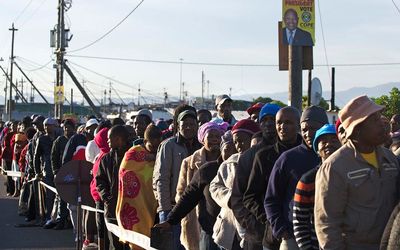
People brave the early-morning Cape Town chill to vote in Khayelitsha, Cape Town, on Wednesday. Picture: TREVOR SAMSON
IF IMPRESSIONS are anything to go by, the electorate in the Cape Town metropole appears to be voting in the same racial blocs that they have in the past — blacks predominantly for the African National Congress (ANC) and coloureds and whites for the Democratic Alliance (DA).
However, newcomer the Economic Freedom Fighters (EFF) made its presence felt in the shacklands of Mitchells Plain, particularly in Samora Machel and particularly among the youth.
As Siphenkosi Mphambo said: "I am still young. Lets give them a chance and see what they can do."
Another EFF supporter, Bulelani Gcobo, said outside the Zisukhanyo Senior Secondary School voting station in Samora Machel that most of the party’s supporters were disaffected ANC members who were looking for alternatives.
Agang SA and the Congress of the People were not to be seen at any of the voting stations visited on the Cape Flats.
Born-frees — those born in 1994 or afterwards — were up early in the university suburb of Rondebosch, creating an hour-long queue which was processed rather slowly. However, the clear blue skies and lack of wind made the occasion of voting in the Mother City a pleasant one.
In more middle-class areas of Mitchells Plain and Athlone, a sea of the DA’s blue predominated while in Khayelitsha and Mandalay the ANC was clearly the most popular of the parties.
The solidity of the ANC’s support base was clear in the many statements of voters, who stressed that former president Nelson Mandela had brought them freedom. Said Lubabalo Masango: "The ANC is in my blood. I cannot say they have done anything for me but I will support them until I die. I am not supporting the president, I am supporting the party."
Both the DA — which controls the province and the city — and the ANC will be looking to expand their support beyond their traditional support bases. For the DA, this is critical to demonstrate that it is becoming a truly nonracial party. For the ANC, it will be a sign that it is beginning to inspire confidence in other communities after years of organisational malaise.
Unlike other provinces, black South Africans do not form the majority of the voters in the Western Cape where they are outnumbered by the largely DA-supporting coloured voters.
Voting patterns in the province as elsewhere in the country are starkly divided along racial lines. According to DA estimates, in the 2009 elections the DA won only 0.8% of the black vote against the ANC’s 82.7%, while the ANC took only 1% of the white vote as against the DA’s 88.5%.
The vote of coloured people — who represent over 53% of the total population of the Western Cape — is critical to any political party aspiring to gain control of the province. It was strongly in favour of the DA (66.7%) in 2009, with the ANC getting about 11% of their vote.
In these circumstances, turnout is critical for both the DA and the ANC and both parties had a strong presence in voting districts, urging their supporters to go to the polls.
Immediately prior to the election both the DA and the ANC were claiming strong gains in the communities where they have historically been weak, with the ANC boasting about the acquisition of former Cape Town City Council’s mayoral committee member for tourism, events and marketing Grant Pascoe and other prominent DA members. For its part, the DA was publicly endorsed by the shack-dwellers movement Abahlali Basemjondolo, which has about 4,500 members.
Voting patterns in Southern Cape towns such as Bitou (the Greater Plettenberg Bay area) Oudtshoorn and Swellendam will also be critical for both the ANC and the DA and will give an indication as to what can be expected in the 2016 local government elections.
The DA won Mossel Bay, George and Knysna with strong outright majorities in the 2011 local government elections, but ran neck and neck with the ANC in Bitou (DA 49%, ANC 46%), Oudtshoorn (ANC 42.5%, DA 40.8%), Swellendam (ANC 42.54%, DA 41.5%), Prince Albert (DA 48.3%, ANC 42.6%), Laingsburg (DA 46.4% ANC 42.5%), Hessequa (DA 47%, ANC 40.5%) and Kannaland (Independent Civic Organisation of South Africa 41%, ANC 27.8% and DA 24.5%).
Coalition governments, some very unstable, had to be formed.
As for the disadvantages of the DA being an incumbent in government — such as the failure to provide housing and sanitation for everyone — DA federal chairman Wilmot James said he did not believe it would make a noteworthy dent in DA support, except perhaps at the margins.
Another new dynamic in the province as a whole is the sharp rise in the number of registered voters which has grown from 2.63-million in 2009 to 2.94-million as migrants from the Eastern Cape and the rural areas have flocked to the city, adding to the overcrowded informal settlements that have mushroomed on the outskirts of Cape Town. The vast majority of the registered voters (1.9-million) are located in the Cape Town metropole, with the remaining 1-million spread across rural towns and farms.
The loss of ANC control of both the provincial legislature and the Cape Town city council to the DA has been a thorn in the side which it desperately wants to remove, but the state of disarray of the party provincially has not helped its cause.
The ANC came out strongest in the 2004 elections winning 46.1% of the Western Cape vote which, together with the New National Party’s 9.4%, allowed it to govern the province. The DA took 26.9% and the Independent Democrats, which would later merge with the DA, won 8% of the vote.
The reversal of fortunes in 2009 was dramatic to say the least. The ANC’s share of the vote plunged to 32.9% while that of the DA soared to 48,7% and the ID’s fell to 4.5%. The Western Cape was in the DA’s hands, a position which was strengthened further in the 2011 local government elections when it took control of the City of Cape Town as well of 11 of the 24 municipalities in the province and was the largest party in four others where it did not hold the majority of seats. The DA won 57% of the provincial vote in 2011, strongly up from its 2006 result of 39.4% while the ANC’s share fell from 40% to 34%.


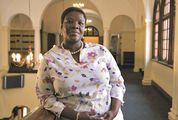
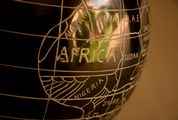
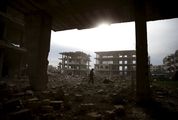




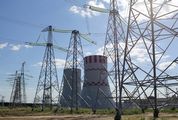
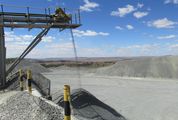



 News, views and analysis of South Africa's national and provincial elections on May 7 2014
News, views and analysis of South Africa's national and provincial elections on May 7 2014









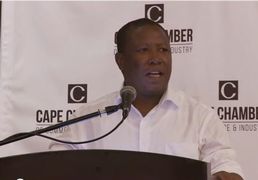




Change: 0.83%
Change: 0.93%
Change: 0.95%
Change: 0.73%
Change: 1.91%
Data supplied by Profile Data
Change: 0.53%
Change: 0.01%
Change: 0.83%
Change: 0.00%
Change: 0.05%
Data supplied by Profile Data
Change: 0.36%
Change: 0.04%
Change: 0.14%
Change: -0.07%
Change: 0.12%
Data supplied by Profile Data
Change: -0.27%
Change: -0.10%
Change: -0.20%
Change: 1.06%
Change: 2.98%
Data supplied by Profile Data